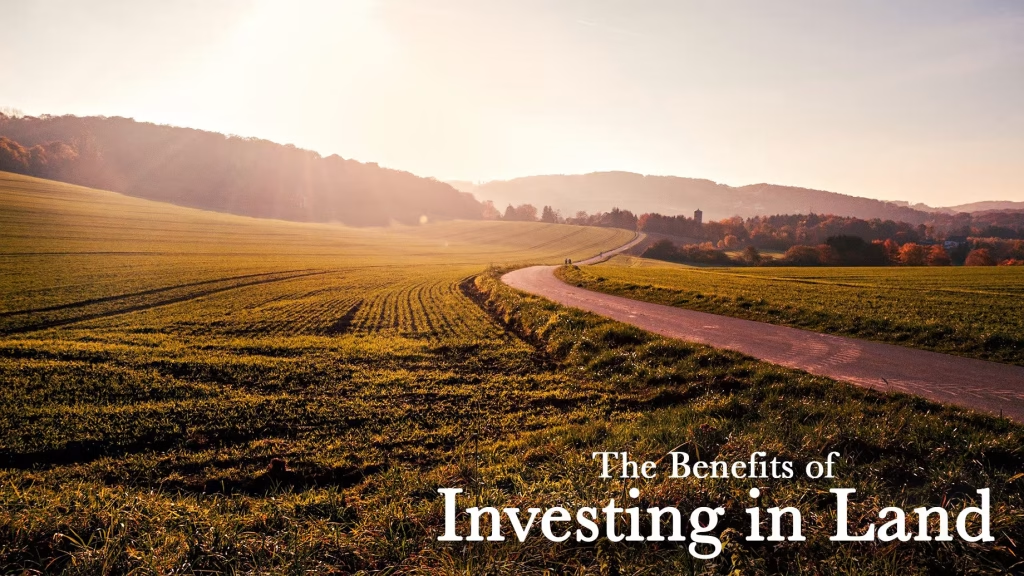Purchasing land has always been considered a safe investment option for people looking to diversify their portfolio. However, the question remains whether buying land is still a good investment in today’s market. While some experts believe that investing in land is a smart move, others argue that the potential risks and limited liquidity of land investments may not be worth the investment.
One of the primary benefits of investing in land is the potential for long-term appreciation. Land is a finite resource, and as the population grows, the demand for land increases. This can lead to an increase in land prices over time, making it a potentially lucrative investment. Additionally, land investments can offer tax benefits, such as deductions for property taxes and mortgage interest. However, it is important to note that land investments can also come with risks, such as zoning restrictions, environmental issues, and limited liquidity.

The Benefits of Investing in Land
Investing in land can be a smart move for those looking to diversify their portfolio. Here are some of the benefits of purchasing land:
Hedge Against Inflation
Land is a tangible asset that can act as a hedge against inflation. Unlike paper assets, such as stocks and bonds, the value of land tends to increase over time. This is because the supply of land is finite, and as the population grows, the demand for land increases. As a result, the price of land tends to rise over the long term, providing investors with a hedge against inflation.
Potential for Appreciation
One of the main benefits of investing in land is the potential for appreciation. Land values tend to increase over time, especially in areas with growing populations and limited land availability. This means that investors who purchase land today could see significant returns in the future.
Passive Income Opportunities
Investing in land can also provide passive income opportunities. Land can be leased to farmers, ranchers, or other businesses for a steady stream of income. Additionally, land can be developed into residential or commercial properties, providing investors with rental income.
Low Maintenance Costs
Compared to other types of real estate investments, land requires relatively low maintenance costs. There are no buildings to maintain, no tenants to manage, and no repairs to make. This makes land a low-risk investment that requires minimal ongoing expenses.
In summary, investing in land can provide a hedge against inflation, potential for appreciation, passive income opportunities, and low maintenance costs. However, it is important to conduct proper due diligence before investing in land to ensure that it is a suitable investment for your financial goals and risk tolerance.
Risks and Considerations of Land Investment
Investing in land can be lucrative, but it comes with its own set of risks and considerations. The market for land can be highly unpredictable, with fluctuations in value influenced by economic conditions, zoning laws, and development plans. Additionally, land can be costly to maintain and may require significant upfront costs for improvements and legal fees. Potential investors should thoroughly research the location, understand local regulations, and consider the long-term holding costs and potential for development. Consulting with real estate professionals and financial advisors can also help mitigate risks and ensure a sound investment.
Here are some of the key risks and considerations:
Market Volatility
Like any other investment, the value of land can be affected by market volatility. The price of land can fluctuate based on a variety of factors, such as changes in interest rates, economic conditions, and government policies. While land is generally considered a long-term investment, investors should be aware that the value of the land they purchase may decrease in the short term due to market volatility.
Liquidity Concerns
Another factor to consider when investing in land is liquidity. Unlike stocks or bonds, land is not a liquid asset, meaning that it cannot be easily converted to cash. Selling land can be a time-consuming and complex process, and it may take months or even years to find a buyer. Investors who need quick access to cash may find it difficult to sell their land quickly, which could be a problem in an emergency.
Zoning and Land Use Regulations
Investors should also be aware of zoning and land use regulations that can affect the value of their land. Zoning regulations determine how land can be used, and investors may find that their land is restricted to certain types of development or that they cannot use their land in the way they had planned. It is important to research local zoning regulations before investing in land to ensure that the investment aligns with your goals.
Environmental Factors
Environmental factors can also affect the value of land. Investors should be aware of potential environmental hazards like pollution or contamination that could make the land difficult to sell or develop. It is important to conduct a thorough environmental assessment of the land before investing to identify potential risks and liabilities.
Overall, while investing in land can be a good long-term investment, investors should be aware of the risks and considerations involved. It is important to conduct thorough research and due diligence before investing to ensure that the investment aligns with your goals and risk tolerance.
Strategies for Successful Land Investment
Investing in land can be a smart move for investors seeking diversification, inflation hedging, and solid long-term returns. However, like any investment, there are risks involved, and it is important to have a sound strategy in place before making a purchase.
Research and Due Diligence
Before investing in land, it is important to conduct thorough research and due diligence. This includes researching the property’s history, zoning regulations, and any environmental issues that may impact the land’s value. It is also important to have a clear understanding of the property’s potential uses and any potential obstacles to development.
Diversification of Land Types
Investors should consider diversifying their land portfolio by investing in different types of land, such as agricultural, residential, and commercial. This can help to mitigate risks associated with any one particular type of land investment.
Understanding Local Markets
Investors should have a clear understanding of the local real estate market in which they are investing. This includes understanding the supply and demand dynamics of the local market, as well as any regulatory or legal issues that may impact the value of the land.
Long-Term Planning
Investing in land requires a long-term perspective, and investors should have a clear plan in place for the development and use of the land. This includes considering factors such as zoning regulations, infrastructure development, and potential changes in the local real estate market.
By following these strategies, investors can increase their chances of success when investing in land. However, it is important to remember that investing in land involves risks, and investors should always seek professional advice before making any investment decisions.
FAQs About the Pros and Cons of Buying Land as an Investment
What are the potential drawbacks of owning land as an investment?
Investing in land can be a lucrative venture, but it also comes with its own set of risks and challenges. Some potential drawbacks of owning land as an investment include the lack of liquidity, the high upfront costs of purchasing land, and the possibility of zoning and regulatory changes that can impact the value of the investment.
How can one generate income from land investments?
There are several ways to generate income from land investments. One way is to lease the land to farmers or other businesses for agricultural or commercial use. Another way is to subdivide the land and sell individual parcels for residential or commercial development. Additionally, landowners can generate income by leasing the land for hunting or other recreational activities.
What are the advantages and disadvantages of investing in land?
Investing in land has several advantages, including the potential for long-term appreciation, the ability to generate passive income, and the potential for tax benefits. However, there are also several disadvantages, such as the lack of liquidity, the high upfront costs, and the potential for regulatory changes that can impact the value of the investment.
What factors should be considered when investing in land to ensure good returns?
Several factors should be considered when investing in land to ensure good returns. These include the location of the land, its potential for development, the local real estate market, the zoning and regulatory environment, and the overall economic climate.
How can an individual invest in land with limited financial resources?
Investing in land can be expensive, but there are several ways for individuals to invest in land with limited financial resources. One way is to purchase land with friends or family members and split the costs and profits. Another way is to invest in a real estate investment trust (REIT) that specializes in land investments.
Which criteria determine the best type of land for investment purposes?
The best type of land for investment purposes depends on several criteria, including the location of the land, its potential for development, the local real estate market, the zoning and regulatory environment, and the overall economic climate. Additionally, factors such as soil quality, water availability, and access to utilities can also impact the value of the investment.




